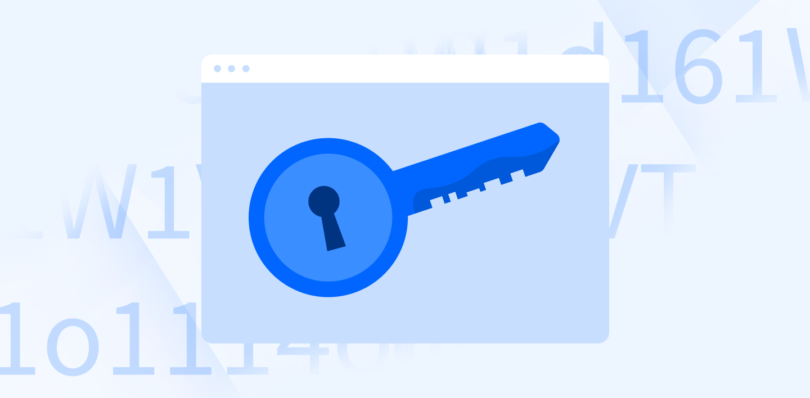In an age where online privacy is increasingly under threat, protecting your personal and business data is more critical than ever. With cybercriminals becoming more sophisticated, and governments and corporations expanding their surveillance capabilities, finding ways to secure your online activities is essential. Proxies offer a powerful solution to enhance your online security and privacy. This article will explore the importance of proxies in secure online browsing and data protection. To explore different proxy options and learn more about their benefits, you can check here.
Understanding Proxies and Their Role in Online Security
A proxy server acts as an intermediary between your device and the internet. When you use a proxy, your internet requests are routed through the proxy server, which then connects to the website or online service you want to access. This process masks your original IP address and replaces it with an IP address from the proxy server, effectively hiding your identity and location from the websites you visit.
Key Benefits of Using Proxies for Secure Browsing
1. Anonymity and Privacy Protection
One of the primary advantages of using a proxy is the anonymity it provides. By masking your IP address, a proxy prevents websites, advertisers, and potential cybercriminals from tracking your online activities. This anonymity is crucial for protecting your personal information, especially when browsing websites that collect user data for targeted advertising or other purposes. Whether you’re researching sensitive topics, accessing confidential information, or simply want to keep your browsing habits private, proxies offer a robust layer of protection.
2. Protection Against Cyber Threats
Cyber threats are constantly evolving, with hackers employing various techniques to steal data, disrupt services, and exploit vulnerabilities. Proxies help mitigate these risks by acting as a barrier between your device and the internet. By routing your traffic through a proxy server, you can reduce the chances of encountering malicious websites or falling victim to phishing attacks. Additionally, some proxies offer encryption features, further securing your data as it travels over the internet.
3. Accessing Geo-Restricted Content
Many online services and websites restrict access to their content based on the user’s geographic location. These geo-restrictions can be a significant barrier for individuals who need to access information or services that are not available in their region. Proxies allow you to bypass these restrictions by providing IP addresses from different locations around the world. This capability enables you to access a wider range of content, whether it’s streaming services, news websites, or social media platforms that are otherwise unavailable in your area.
4. Enhanced Security for Remote Work
With the rise of remote work, ensuring secure access to corporate networks and sensitive data has become a top priority for businesses. Proxies play a vital role in securing remote connections by masking employees’ IP addresses and encrypting their internet traffic. This reduces the risk of data breaches and unauthorized access, ensuring that remote workers can access the resources they need without compromising the security of the organization.
5. Improved Performance and Bandwidth Savings
In addition to security benefits, proxies can also improve your internet performance. Some proxies cache frequently accessed websites, meaning that when you revisit these sites, the proxy server can deliver the content faster than if it had to retrieve it from the internet again. This caching can lead to significant bandwidth savings and faster load times, especially for businesses that rely on high-traffic websites or have large numbers of users accessing the same content.
Different Types of Proxies and Their Uses
1. Residential Proxies
- Description: Use IP addresses assigned by ISPs to residential users, making them appear as regular home connections.
- Use Case: Ideal for maintaining high anonymity and bypassing geo-restrictions. Residential proxies are less likely to be detected or blocked by websites.
2. Datacenter Proxies
- Description: Provided by data centers, these proxies offer high-speed connections without being affiliated with ISPs.
- Use Case: Suitable for tasks that require fast and efficient data access, such as web scraping, large-scale data collection, or managing multiple social media accounts.
3. Mobile Proxies
- Description: Utilize IP addresses provided by mobile carriers, simulating traffic from mobile devices.
- Use Case: Useful for testing mobile apps, accessing mobile-specific content, and ensuring that mobile ads are being delivered correctly.
Implementing Proxies for Secure Online Activities
A. Selecting the Right Proxy Service
Choosing the right proxy service is crucial for ensuring that your online activities remain secure and private. Look for a provider that offers a wide range of IP addresses, high-speed connections, and robust security features. A trusted service like proxy-seller.com provides high-quality proxies that meet the specific needs of your browsing, whether it’s for personal use, business, or advanced data protection.
B. Configuring Proxies for Optimal Security
Once you’ve selected a proxy service, it’s essential to configure your proxies correctly to maximize their security benefits. This includes setting up your browser or network settings to use the proxy, regularly rotating IP addresses to avoid detection, and ensuring that your proxy service uses encryption to protect your data during transmission.
C. Integrating Proxies with Other Security Tools
While proxies offer significant protection, they should be part of a comprehensive security strategy. Integrating proxies with other security tools, such as firewalls, antivirus software, and VPNs, can provide multiple layers of defense against cyber threats. This multi-faceted approach ensures that your online activities remain secure, private, and efficient.
Best Practices for Using Proxies
1. Adhering to Legal and Ethical Standards
When using proxies, it’s essential to adhere to legal and ethical standards. Unauthorized access to restricted content, data scraping, or violating website terms of service can lead to legal consequences and damage your reputation. Always use proxies responsibly and in compliance with relevant laws and regulations.
2. Monitoring and Managing Proxy Usage
Regular monitoring and management of proxy usage help ensure that your proxies are functioning correctly and that your online activities remain secure. This includes checking for any unusual activity, ensuring that IP addresses are rotated regularly, and updating proxy settings as needed.
Conclusion
Proxies are a powerful tool for enhancing online security, protecting your privacy, and ensuring access to a broader range of content. Whether you’re an individual looking to browse the web anonymously or a business needing to secure remote work connections, proxies offer the flexibility and security you need.
To explore more about how proxies can benefit your online activities, be sure to check here for more information and access to high-quality proxy services. As the internet continues to evolve, leveraging the power of proxies will be essential for maintaining control over your digital footprint and safeguarding your data.





